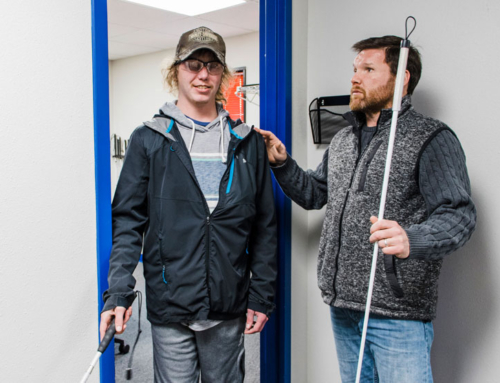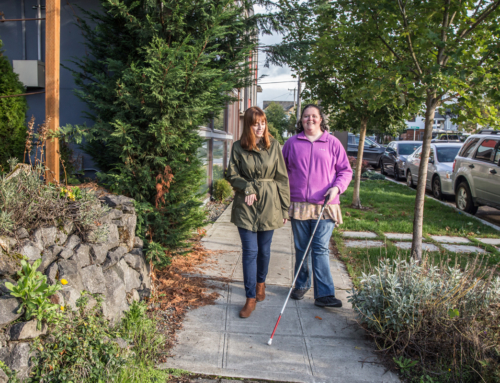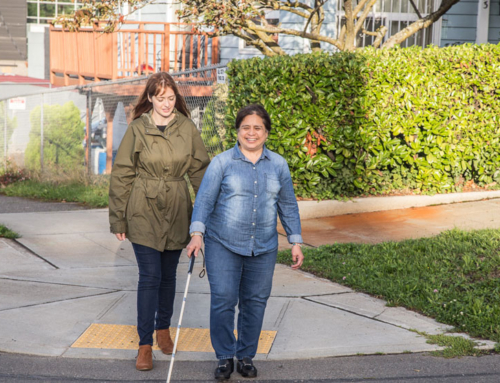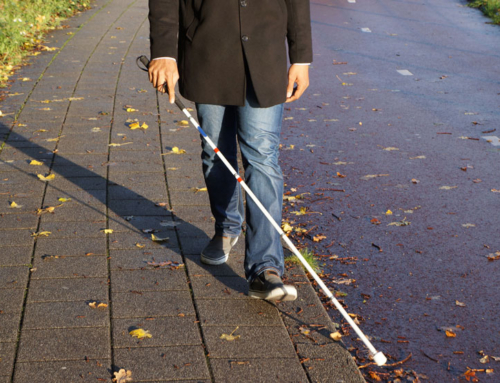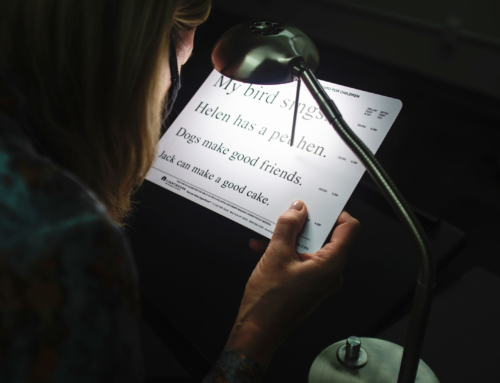Courtesy of Lighthouse Employee Nathan Brannon
Before I lost my sight I used to walk everywhere – to Green Lake, to the Burke-Gilman Trail, and other destinations around the city. Once I became totally blind, my travel became somewhat restricted and I felt that the freedom I once experienced was lost. Being in this situation, my lovely wife suggested that I get a guide dog, saying that it could increase my ease of travel. After thinking about if for about a year, I decided to go ahead and apply for a guide dog program. I chose Guide Dogs for the Blind as my school for two reasons: they have a campus in Boring, Oregon (which is close to where I live in Washington), and because of their reputation of impeccable training and follow-up. They are said to be one of the best schools in the nation. I was there for two weeks of intensive training and came home with my new dog, Mozart, a male yellow Labrador Retriever.
Choosing to work with a guide dog meant a significant change in lifestyle, but the benefits have far outweighed any disadvantages. Mozart is a very loyal companion and only wishes to please me. He is one of the mellowest and most obedient dogs I have ever met. Mozart attracts a lot of attention from people, especially when we ride the city bus.
Traveling has become so much easier with Mozart as my guide. Instead of finding obstacles with my cane and having to find a way around them, I can swiftly travel through my environment with ease, avoiding any potential barriers. It’s as if I have gained back some of my sight. We make a wonderful and efficient team. It is true that a guide dog is not right for everyone, and the choice is a very personal one that needs to be made with a lot of consideration. I suggest that anyone considering applying for a guide dog talk to past and present guide dog users and learn of their experience. Hearing about their experiences will greatly help you understand your choices.

